Are you considering adding a unique and rare breed of dog to your family? If so, you may want to consider the New Guinea singing dog. This breed is known for its distinctive vocalizations and its wild origins. While they may not be the easiest breed to find, they can make wonderful pets for the right owner. In this guide, we will explore the history, characteristics, and care requirements of the New Guinea singing dog to help you decide if this breed is right for you.
Breed Category: Spitz-type
Country of Origin: Papua New Guinea
Average Size:30-46 cm
Average Weight:7-14 kg
Average Life Span: 12-15 years
Grooming Requirements: Low
Exercise Requirements:High
History and Origin
The New Guinea singing dog is a rare and unique breed of dog that is native to the island of New Guinea. These dogs are known for their distinctive vocalizations, which have been described as a cross between a howl and a yodel. The history and origin of the New Guinea singing dog is shrouded in mystery, but recent genetic studies have shed some light on their ancestry.
The New Guinea singing dog is believed to be one of the oldest and most primitive dog breeds in the world. They are thought to have descended from the same ancestral stock as the Australian dingo, which is also a primitive dog breed. The ancestors of the New Guinea singing dog are believed to have arrived on the island of New Guinea over 6,000 years ago, when humans first began to settle the region.
For many years, the New Guinea singing dog was thought to be extinct in the wild. However, in the 1950s, a small population of these dogs was discovered in the highlands of New Guinea. These dogs were captured and brought to zoos and private collections around the world, where they were bred in captivity. Today, there are believed to be only a few hundred New Guinea singing dogs in existence, and they are considered to be one of the rarest dog breeds in the world.
The New Guinea singing dog is a small to medium-sized dog, with a lean and muscular build. They have a short, dense coat that is usually black or tan in color. Their ears are erect and pointed, and their tails are bushy and curled over their backs. These dogs are known for their agility and endurance, and they are often used for hunting and tracking in their native New Guinea.
One of the most distinctive features of the New Guinea singing dog is their vocalizations. These dogs are known for their ability to produce a wide range of sounds, including a high-pitched howl, a low growl, and a yodel-like sound that is unique to this breed. These vocalizations are thought to be a form of communication between members of the pack, and they are often used to coordinate hunting and other activities.
Despite their rarity and unique characteristics, the New Guinea singing dog is not recognized as a distinct breed by most major kennel clubs. This is due in part to the fact that there is still much that is unknown about their history and
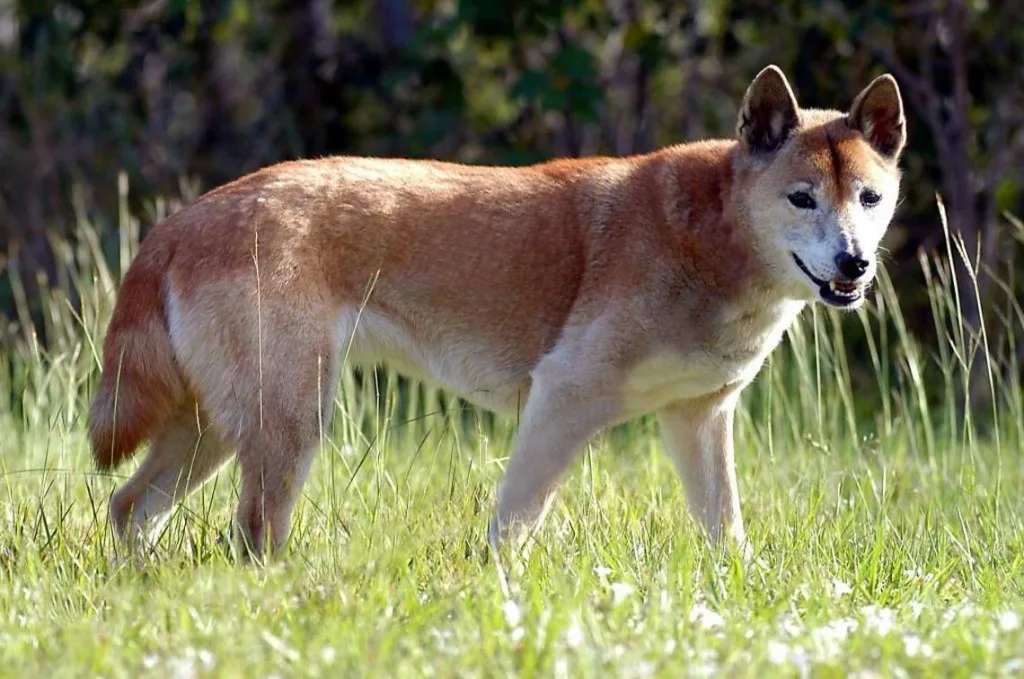
Size and Breed Category
The New Guinea singing dog is a small to medium-sized breed that typically weighs between 9 and 14 kilograms. They stand at a height of around 30 to 46 centimeters at the shoulder. Despite their small size, they are known for their agility and endurance, which makes them excellent hunters. They have a lean and muscular build, with a short and dense coat that comes in a variety of colors, including black, tan, and sable. Their ears are erect and pointed, and their tails are bushy and curled over their backs. Overall, the New Guinea singing dog is a well-proportioned breed that is both elegant and athletic.
The New Guinea singing dog is a primitive breed that is believed to have originated from the highlands of New Guinea. They are known for their unique vocalizations, which include a wide range of howls, yelps, and whines. They are also highly intelligent and independent, which can make them challenging to train. However, with proper socialization and training, they can make loyal and affectionate companions. Due to their primitive nature, they are not recommended for first-time dog owners or families with young children. Instead, they are best suited for experienced dog owners who can provide them with the exercise, mental stimulation, and socialization they need to thrive.
Fur Length and Colour
The fur of the New Guinea singing dog is typically short and dense, with a soft undercoat and a coarser outer coat. The fur is usually a reddish-brown or tan color, with white markings on the chest, feet, and tail. The fur on the tail is often bushy and held upright, while the fur on the ears is short and pointed. The fur on the face is usually darker than the rest of the body, with a black or dark brown mask around the eyes and muzzle. The fur on the legs is also darker than the body, with black or dark brown stockings. Overall, the fur of the New Guinea singing dog is well-suited to its native environment, providing warmth and protection from the elements.
In addition to the typical reddish-brown or tan coloration, some New Guinea singing dogs may have a more unusual fur color. For example, some individuals may have a black or dark brown coat, while others may have a cream or white coat. These variations in fur color are thought to be the result of interbreeding with domestic dogs, which has occurred in some populations. However, the majority of New Guinea singing dogs have the characteristic reddish-brown or tan coat, which helps them blend in with their natural surroundings. Overall, the fur color of the New Guinea singing dog is an important adaptation that allows them to survive in their unique habitat.
Termperament and Trainability
New Guinea singing dogs are known for their independent and curious temperament. They are highly alert and observant, making them excellent watchdogs. However, they can also be quite reserved and cautious around strangers. These dogs are not typically aggressive, but they may become defensive if they feel threatened. They are also known for their vocalizations, which include a unique howling and yodeling sound.
In terms of trainability, New Guinea singing dogs can be challenging to train due to their independent nature. They are not naturally inclined to follow commands and may require a lot of patience and consistency from their owners. However, they are highly intelligent and can learn quickly with positive reinforcement training methods. It is important to socialize these dogs from a young age to prevent any potential behavioral issues. Overall, New Guinea singing dogs require an experienced and dedicated owner who is willing to put in the time and effort to properly train and socialize them.
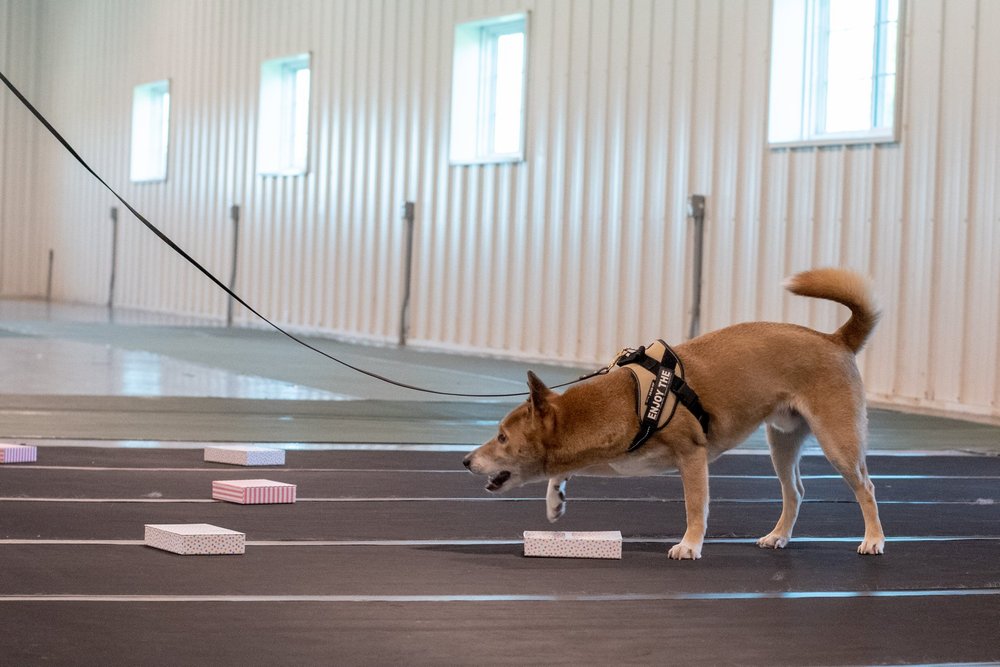
Known Health Conditions
New Guinea singing dogs are a rare breed of wild dog that are native to the island of New Guinea. They are known to be highly intelligent and have a unique vocalization that sounds like a mix between a howl and a yodel. Despite their wild nature, they have been domesticated and kept as pets in some parts of the world.
One known health condition of the New Guinea singing dog is hip dysplasia. This is a genetic condition that affects the hip joint and can cause pain and discomfort for the dog. It is important for owners to have their dogs screened for hip dysplasia before breeding them to prevent passing on the condition to future generations. Another health concern for these dogs is dental issues. Due to their diet, which consists mainly of raw meat and bones, they are prone to dental problems such as tooth decay and gum disease. Regular dental check-ups and cleanings are recommended to maintain their oral health.
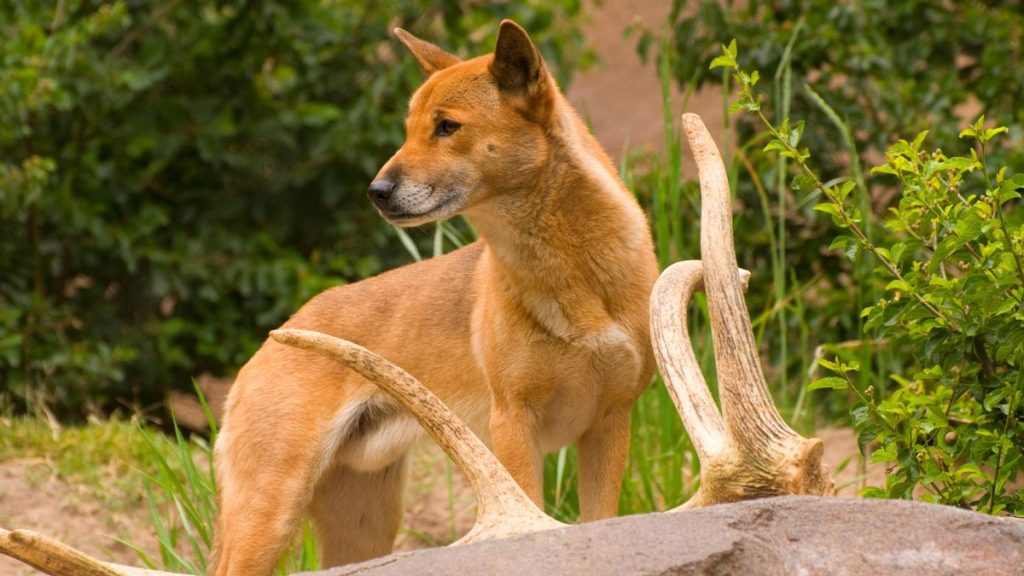
Openness to Strangers
New Guinea singing dogs, also known as the Highland Wild Dog, are a rare and unique species of canine that are native to the island of New Guinea. These dogs are known for their distinctive vocalizations, which are often described as a mix between a howl and a yodel. Despite their wild nature, these dogs have been known to show a surprising openness to strangers, particularly when they are raised in captivity.
In fact, many owners of New Guinea singing dogs report that their pets are incredibly friendly and affectionate towards people, even those they have never met before. This is especially true when the dogs are socialized from a young age and given plenty of opportunities to interact with humans. However, it is important to note that these dogs are still wild animals at heart, and they may exhibit more cautious or reserved behavior around strangers in certain situations.
Playfulness Level
The New Guinea singing dog is a fascinating canine species that is known for its playful nature. These dogs are highly energetic and love to play with their owners and other dogs. They are also known for their love of toys and games, and will often spend hours playing with balls, frisbees, and other toys. Despite their playful nature, however, these dogs are also highly intelligent and require plenty of mental stimulation to keep them happy and healthy.
One of the most interesting things about the New Guinea singing dog is their unique vocalizations. These dogs are known for their ability to produce a wide range of sounds, including howls, yelps, and even a distinctive “singing” sound. This vocalization is thought to be a form of communication between members of the pack, and is often used to coordinate hunting and other activities. Overall, the New Guinea singing dog is a highly playful and intelligent breed that is sure to bring joy and excitement to any household.
Suitability as a Pet for Children
New Guinea singing dogs have a unique vocalization that resembles a wolf howl mixed with a whale song. They are highly intelligent and independent, which can make them challenging pets for inexperienced owners. However, with proper training and socialization, they can make loyal and affectionate companions. They have a high energy level and require plenty of exercise and mental stimulation to prevent destructive behavior. Due to their strong prey drive, they may not be suitable for households with small pets. Overall, the New Guinea singing dog can be a rewarding pet for families with older children who are willing to put in the time and effort to meet their needs.
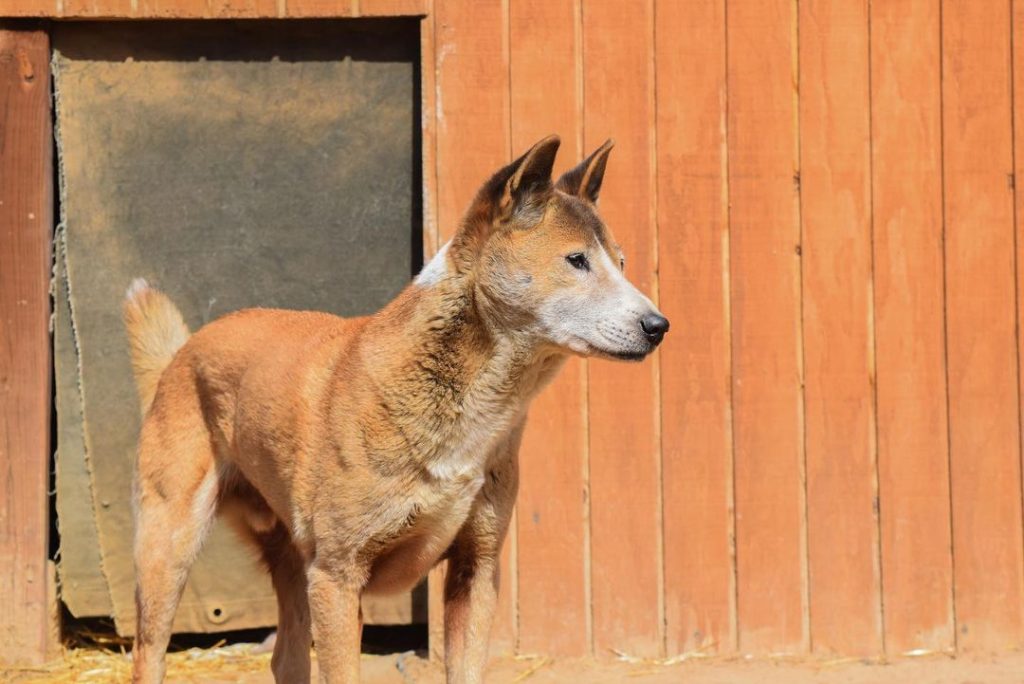
Exercise Needs
New Guinea singing dogs are highly active and require a significant amount of exercise to maintain their physical and mental health. These dogs are known for their agility and endurance, and they thrive in environments that allow them to run, jump, and explore. Owners should provide their New Guinea singing dogs with at least 60 minutes of exercise per day, which can include activities such as hiking, running, or playing fetch. It is important to note that these dogs have a strong prey drive and should always be kept on a leash or in a secure, fenced area to prevent them from chasing after small animals.
In addition to physical exercise, New Guinea singing dogs also require mental stimulation to prevent boredom and destructive behavior. These dogs are highly intelligent and enjoy learning new tricks and commands. Owners can provide mental stimulation through activities such as obedience training, puzzle toys, and interactive games. It is important to establish a consistent exercise and training routine to ensure that these dogs receive the physical and mental stimulation they need to thrive. With proper exercise and training, New Guinea singing dogs can make excellent companions for active individuals or families.
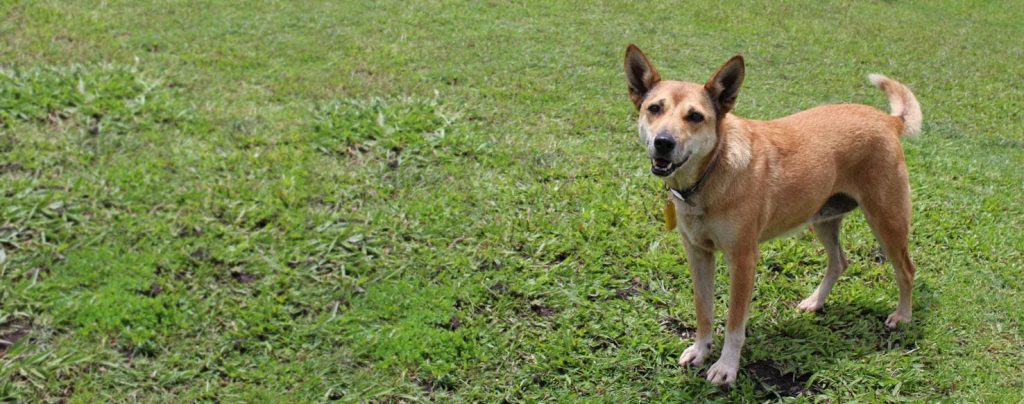
Suitability for a Multi-Pet Family
New Guinea singing dogs have been known to live in packs in the wild, but their social behavior with other pets in a domestic setting is not well documented. As a primitive breed, they may have a strong prey drive and may not be suitable to live with smaller animals such as cats or rabbits. However, with proper socialization and training, they may be able to coexist peacefully with other dogs. It is important to note that each individual dog may have its own unique personality and temperament, so it is important to introduce them to other pets slowly and carefully.
Housing Requirements
New Guinea singing dogs require a living space that is large enough for them to move around freely. They are active dogs that need plenty of exercise, so a spacious yard or garden is ideal. The living space should be secure and have a high fence to prevent them from escaping. New Guinea singing dogs are known for their climbing abilities, so the fence should be high enough to prevent them from jumping over it. They also require a sheltered area where they can rest and sleep comfortably. The shelter should be well-insulated to protect them from extreme weather conditions. Additionally, they need access to clean water and food at all times.
New Guinea singing dogs have a thick coat that requires regular grooming. They shed seasonally, so they need to be brushed frequently to prevent matting and tangling. They also need regular baths to keep their coat clean and healthy. New Guinea singing dogs are prone to dental problems, so they need to have their teeth brushed regularly. They also require regular visits to the vet to ensure that they are healthy and up-to-date on their vaccinations. New Guinea singing dogs are social animals and thrive in the company of other dogs, so it is recommended that they have a companion. They also require plenty of attention and interaction from their owners to keep them happy and healthy.
Summary
The New Guinea singing dog is a unique canine species that has been domesticated by some people as a pet. However, owning one requires a lot of knowledge and experience in handling wild animals. They are not suitable for inexperienced pet owners due to their high energy levels and strong hunting instincts. Additionally, they require a lot of space and exercise to keep them healthy and happy. Therefore, potential owners should carefully consider their lifestyle and ability to provide for the dog’s needs before adopting a New Guinea singing dog.
New Guinea Singing Dog FAQS
New Guinea singing dogs are intelligent but can be stubborn and independent. Consistent and positive training methods are recommended.
New Guinea singing dogs can adapt to apartment living as long as they receive enough exercise and mental stimulation.
New Guinea singing dogs are not recommended for families with young children as they can be shy and reserved around strangers.
New Guinea singing dogs can be territorial and may not get along with other dogs or pets. Early socialization is important.
New Guinea singing dogs are generally healthy but can be prone to hip dysplasia and dental issues. Regular vet check-ups are recommended.
Yes, New Guinea singing dogs shed moderately throughout the year and heavily during shedding season. Regular brushing is recommended.
New Guinea singing dogs require at least 60 minutes of exercise per day, including walks and playtime.
The average height of a New Guinea singing dog is 30-46 cm and the average weight is 7-14 kg.
The average lifespan of a New Guinea singing dog is 12-15 years.
New Guinea singing dogs are a rare breed and can be difficult to find. It is important to research reputable breeders and rescue organizations.


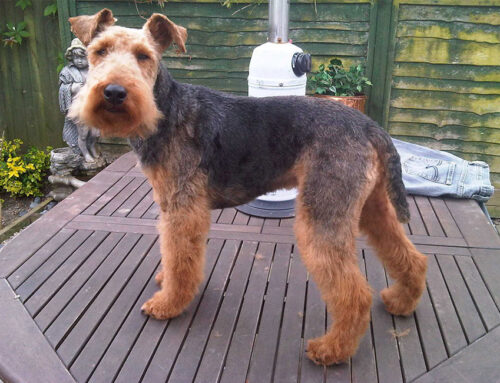


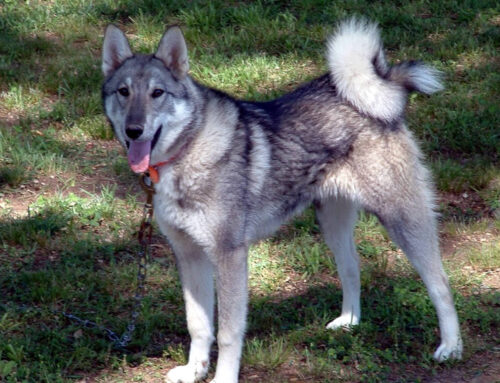
Leave A Comment